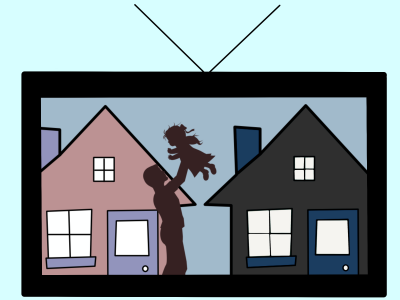We’re always taught to avoid clichés in writing. I get that. But sometimes these clichés are so good that they should be repeated over and over again.
Ninety percent of the romance books I’ve read are the same: the girl is a ball of sunshine, and the guy hates everyone but her. Then they arrive at a motel, and, oh my gosh — there’s one bed!
Some people might sigh in annoyance at these tropes. They’re cheesy and overused, and I will never get tired of them. No matter how often I read them — I’ll still kick my feet and giggle.
I present five of my favorite fictional tropes that will never get old.
Found family
A story where the main character grows up never being loved the way they deserve, then they evolve as a person — finding a family who loves them unconditionally. This trope is the purest thing in the world. The main character and their new family are not bonded by blood, but they’re bonded by something even stronger. Every time I stumble upon a well-written found family book or movie, I melt.
It’s so heartwarming because I’ve found that while following these characters’ journeys, I almost feel like I’m there with them. This plotline immerses you in the story and you feel all kinds of gooey emotions.

Small town
I guess this isn’t really a trope — it’s more of an atmosphere. Nevertheless, I’m obsessed. Small towns always bring such a comforting feeling. I don’t know if that’s because I’ve only lived in cities my entire life, but I always get the urge to jump through the screen or the pages to experience life with the characters.
Unless, we’re talking murder mystery. Then I’d much rather be in a huge city.
Father-daughter relationships
Does this count as a found family? Let’s say it doesn’t because these two aren’t even on the same level. A father-daughter bond is my favorite trope by far.
A tough, middle-aged man is angry at the world, but when he meets an adorable, scared orphan, he immediately turns into the softest version of himself and becomes a dad. Count me in.
Geralt and Ciri from “The Witcher” are a perfect example of this. I don’t care if the content is bad, and I don’t care if the visuals suck. I’m here for Geralt and Ciri.
Face-Heel turn
Good, moral and heroic characters are great. They can serve as strong protagonists. Let’s be honest, though — they’re boring. They’re predictable and I don’t get attached to them.
The moment they start to turn evil though? That’s a whole different story. I’m immediately invested.
When Jean Grey came back to life in “X-Men: The Last Stand” and went insane, I was right there with her — screaming at her to go feral and kill the characters I was supposed to be cheering for. When Morgana Pendragon became the main villain in “Merlin,” I fell even more in love with her.
I can’t exactly tell you why this trope fascinates me. Maybe because it’s heartbreaking to see a once kind-hearted person go bad. Or maybe it’s just the perfect way to shake things up in a story. Either way, I’ll watch every single movie with this trope in it.
Betrayal
This one can easily be butchered. It’s imperative that the writing is good, but once it’s executed well, betrayal adds so much depth and suspense into a character and story.
When Hans refused to save Anna from her death in “Frozen,” 12-year-old me was screaming in her seat. That probably wasn’t the best example. Hopefully, you get the idea.
The betrayal trope makes everything so interesting. Whoever was once a side character is now the villain, and that adds so much flavor to the story.
This trope may seem too similar to the previous trope but I think there’s a noticeable difference. Betrayals come from someone unexpected, whereas face-heel turns can happen to a main character who slowly goes insane. It isn’t necessarily played off as a betrayal.
I know there’s probably some film professor or literary critic rolling their eyes at my list. But you know what? There’s a certain joy in consuming fiction without over-analyzing every tiny detail. It makes things more enjoyable.




















































































































